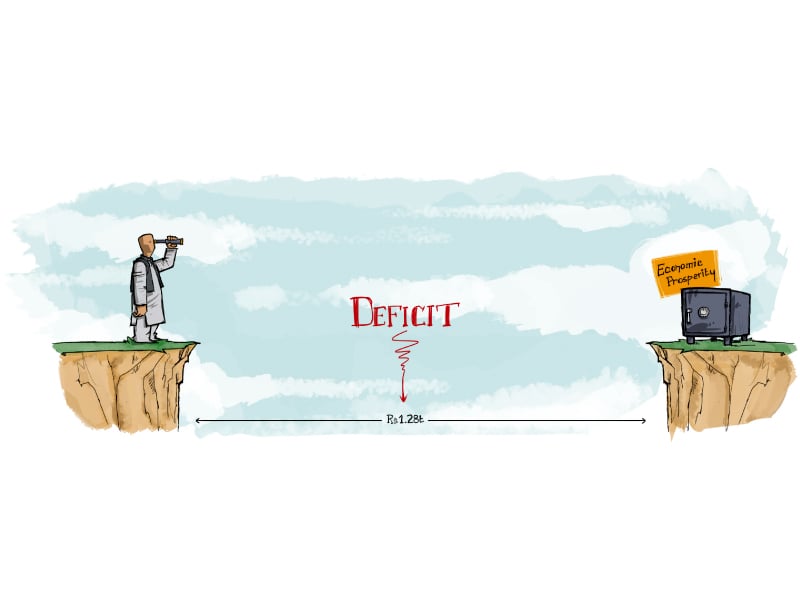
One of the key areas where the government machinery – across successive regimes - has failed is in making ends meet. There has been a consistent failure in earning more than the government has been spending.
The report, compiled by prominent economist Kaiser Bengali uses the year 2007-08 to highlight this rupee gap because of the unique figures for that year. Total tax revenue for 2007-08 stood at Rs1 trillion and expenses on three areas – debt servicing, defence and civil adminstraton (all non-developmental expenditure) – came to Rs1.16 trillion. In other words the government spent all the available funds (collected through taxation) on itself, in fact went over by Rs160 billion, clearly leaving nothing for development expenditure.

Source: FBR Quarterly Reviews
The report very bluntly describes this, comparing it to a factory that spends all of its sales revenues on maintaining its head-office and staff salaries, leaving nothing for raw materials or other productive spending. One does not have to be an economist to conclude that it would not be long before such a factory shut down.
This is basically what successive governments have been doing in Pakistan over the past few decades. And as a result the debt burden – to finance development expenses – has been growing every year.
Herein lies the flaw in recent policies where the focus has been on resource mobilisation. However the problem is that the bulk of these resources are being targeted through tax collection which renders it almost pre-destined to fail considering the very low tax-GDP ratio and the very small tax net.
Added to this is the way the tax is structured in Pakistan. The report terms it a very regressive structure with over 80% of the revenues being generated through indirect taxation and the richest 10% of the population ends up paying just 5.9% in indirect taxes. On the flip side, the poorest 10% of the population actually pay 9.3%.
While the overall tax-GDP ratio hovers around 9% for indirect taxation, this is much lower at 3% when it comes to direct taxation. When one digs a bit deeper into how unfair the taxation regime is in certain places some interesting numbers crop up.

For example manufacturing contributes about 20% to the GDP but ends up paying over 60% of all taxes generated a skewed ratio. It is imbalances like these as well as the over dependence on indirect taxation that makes it a regressive regime.
The report also makes a strong link between the fiscal deficit and subsidies as well as non-developmental expenditure. Data presented in the report shows that fiscal deficit as a percentage of the GDP declined from 7.8% over the pre-privatisation years (1985-92) to about 6.6% over the post-privatisation years (1993-99). The report concludes that on the surface it seems as if this decline can be attributed to the fact that average rate of growth of subsidies fell from 19.5% over 1985-92 to 10.8% over 1993-99. Along with this the average growth rate of non-development expenditure over the same two periods fell from 15.4% to 13.7%.

But the report then goes on to show that the main reason behind the drop in the budget deficit was the sharp drop in the average rate of growth in development expenditure from 16.6% to 1.9% over the same comparative time-frames.

It is clear that we have to reduce our non-development expenditure and switch freed resources development expenditure.
The latter has been consistently falling as a percentage of GDP from nine percent in the 1970s to 7.3% in the 1980s to 4.7% in the 1990s and to 3.5% in the 2000s.
Published in The Express Tribune, September 16th, 2013.
Like Business on Facebook, follow @TribuneBiz on Twitter to stay informed and join in the conversation.
COMMENTS (1)
Comments are moderated and generally will be posted if they are on-topic and not abusive.
For more information, please see our Comments FAQ

















By comparison, the top 5% of American wage earners pay around 50% of total federal income taxes, while the bottom 50% pay almost nothing! In Pakistan this is really reversed, with the wealthy and agricultural sectors (more rich) exempt from most/all taxes!